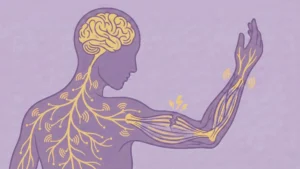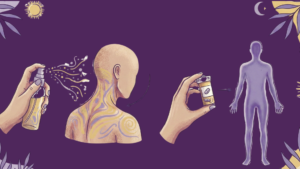Turning 30 is a milestone—both emotionally and biologically. It marks the beginning of gradual physiological changes, especially in your musculoskeletal system. Muscle mass begins to decline, bones slowly lose density, and your metabolism starts to shift. The good news? Proper nutrition after your 30s can significantly improve your chances of living a longer, healthier life.
In this article, we’ll explore how nutrition affects longevity, which nutrients are critical after 30, and how you can build a diet that supports strength, mobility, and vitality well into your later years.
Nutrition for Bones, Joints, and Long-Term Musculoskeletal Health After 30
As you move into your 30s, nutrition for bones and joints becomes a non-negotiable part of healthy aging. A well-planned diet for longevity of the musculoskeletal system helps preserve strength, mobility, and flexibility while reducing the risk of chronic pain and degeneration.
Best Foods for Bone Strength After 30
To support post-30s bone health nutrition, focus on whole foods that deliver calcium, magnesium, and vitamin D together, since they work synergistically.
- Calcium magnesium vitamin D diet staples: ragi, sesame seeds, dairy, tofu, leafy greens, sunlight exposure
- These nutrients are essential for bone mineralization and preventing early bone loss
Foods for Musculoskeletal Health & Muscle Preservation
After 30, your body needs targeted nutrition to prevent muscle loss and support connective tissue health.
- High-protein foods (lentils, eggs, fish, paneer) aid muscle repair
- Collagen-rich foods for joints like bone broth, citrus fruits, berries, and amla help maintain tendon and ligament strength
- Vitamin C-rich foods enhance collagen synthesis and joint resilience
Diet to Reduce Inflammation in Joints
Low-grade inflammation accelerates joint degeneration. An anti-inflammatory diet for joint health can slow this process.
Include:
- Omega-3 sources: flaxseeds, walnuts, fatty fish
- Spices: turmeric, ginger
- Antioxidant-rich foods: berries, green tea, dark chocolate
This approach supports diet to reduce inflammation in joints and improves long-term mobility.
The Longevity Diet: Nutrients You Must Focus On After 30
Protein: The Foundation of Muscle Maintenance
Why It Matters:
Protein supports muscle repair and synthesis, crucial for counteracting sarcopenia.
Daily Recommendation:
1.2–1.5 grams per kilogram of body weight (1)
Best Sources:
- Plant-based: Lentils, chickpeas, soybeans, quinoa
- Animal-based: Eggs, paneer, chicken, fish, Greek yogurt
Research Insight:
A 2017 study published in the Journal of Nutrition and Food Sciences confirms that higher protein intake supports muscle retention in aging adults (1).
Vitamin D: The Key to Bone Density
Why It Matters:
Vitamin D helps absorb calcium and supports bone remodeling.
Daily Recommendation:
600–800 IU for adults (2)
Best Sources:
- Natural: Sunlight exposure (15–30 minutes daily)
- Food: Fortified milk, egg yolks, fatty fish, mushrooms
Research Insight:
A review in the American Journal of Clinical Nutrition highlights that vitamin D deficiency is directly linked to increased fracture risks in older adults (2).
Calcium: Strengthening Your Bones
Why It Matters:
Your body draws calcium from bones when dietary intake is low, leading to bone weakening.
Daily Recommendation:
1000 mg/day for adults aged 30–50; 1200 mg/day after 50 (3)
Best Sources:
- Dairy: Milk, paneer, yogurt
- Non-dairy: Tofu, sesame seeds, broccoli, ragi
Research Insight:
According to the National Institutes of Health, consistent calcium intake improves peak bone mass and lowers osteoporosis risk (3).
Magnesium: The Muscle Relaxant
Why It Matters:
Magnesium supports muscle function, nerve health, and calcium balance in bones.
Daily Recommendation:
310–420 mg/day (4)
Best Sources:
- Nuts: Almonds, cashews
- Greens: Spinach, kale
- Others: Avocados, bananas, dark chocolate
Research Insight:
The Magnesium Research Journal links adequate magnesium to better muscle performance and reduced joint inflammation (4).
Vitamin C: The Collagen Builder
Why It Matters:
Vitamin C is essential for collagen production, which keeps tendons, ligaments, and skin healthy.
Daily Recommendation:
75–90 mg/day; higher if you’re physically active or under stress (5)
Best Sources:
Amla (Indian gooseberry), oranges, guava, bell peppers, tomatoes
Research Insight:
A study published in Osteoarthritis and Cartilage suggests vitamin C intake reduces the risk of cartilage degradation (5).
Additional Nutrients Worth Including
Omega-3 Fatty Acids: Brain and Joint Support
- Found in flaxseeds, walnuts, and fatty fish
- Help reduce joint inflammation and support cognitive longevity (6)
Antioxidants: Fighting Cellular Aging
- Polyphenols in berries, green tea, turmeric, and dark chocolate help neutralize free radicals that accelerate aging.
Zinc and Selenium: Immunity and Cellular Health
- Found in pumpkin seeds, whole grains, and sunflower seeds
- Help regulate hormonal health and protect cells from oxidative damage (7)
Practical Tips for Building a Longevity Diet
Stay Hydrated
Dehydration can affect muscle performance and joint lubrication. Drink 8–10 glasses of water daily.
Portion Control
Focus on balanced meals: 50% vegetables/fruits, 25% whole grains, and 25% protein.
Don’t Skip Meals
Irregular eating impacts metabolism and blood sugar control. Stick to consistent meal timings.
Include Indian Superfoods
- Ragi: Calcium-rich millet for bone strength
- Amla: Vitamin C powerhouse
- Turmeric: Anti-inflammatory benefits
- Moringa: Packed with protein, iron, and calcium
Common Mistakes to Avoid in Your 30s
Overreliance on Supplements
While supplements can help, they shouldn’t replace whole foods.
Skipping Strength Training
Nutrition alone can’t prevent muscle loss—include resistance workouts 2–3 times/week.
Ignoring Micronutrients
Vitamins and minerals are as essential as macros like protein or carbs for healthy aging.
Lifestyle Factors That Complement Nutrition
Stay Active:
- At least 150 minutes of moderate aerobic activity per week
- Add yoga or Pilates for flexibility and joint health
Prioritize Sleep:
- Aim for 7–9 hours to support muscle repair and hormone regulation
Manage Stress:
- Chronic stress leads to nutrient depletion and hormonal imbalance
- Practice meditation, journaling, or hobbies you love
Common Nutrition Myths About Aging and Bone Health
Myth 1: Bone loss is inevitable after 30
Fact: While some decline is natural, the right diet for longevity of the musculoskeletal system combined with strength training can significantly slow bone and muscle loss.
Myth 2: Calcium alone is enough for bone health
Fact: Calcium without magnesium and vitamin D is poorly absorbed. A balanced calcium magnesium vitamin D diet is essential.
Myth 3: Joint pain is only about age, not food
Fact: Diet plays a major role. Foods for musculoskeletal health directly impact inflammation, cartilage integrity, and joint lubrication.
Myth 4: Supplements work better than food
Fact: Whole foods provide better bioavailability and additional antioxidants that supplements often lack.
Conclusion
After the age of 30, longevity isn’t just about living longer—it’s about living better. By making nutrition a priority, you can preserve muscle mass, strengthen bones, and improve overall vitality. The right diet rich in protein, calcium, magnesium, vitamins D and C, and antioxidants combined with an active lifestyle, sets the foundation for a healthy, mobile, and joyful future.
Start now because aging well is a daily decision.
References:
- Dominguez, L. J. et al. (2025). Nutrition and Physical Activity in Musculoskeletal Health. Endocrines, 6(1), 10. Reviews the interplay between diet and exercise in preventing osteoporosis and sarcopenia. MDPI
- D’Amelio, P. & Isaia, G. (2015). Protein intake and bone health. Nutrients, 7(2), 213‑222. Highlights effects of dietary protein on bone density.
- Heaney, R. P. & Weaver, C. M. (2017). Calcium and bone health: A review of the evidence. American Journal of Clinical Nutrition, 105(4), 929‑937. Summarizes calcium’s role in skeletal integrity.
- Vatanparast, H. & Tsiaras, W. (2018). Calcium intake and bone health. Journal of Clinical Endocrinology & Metabolism, 103(5), 2005‑2013. Discusses calcium requirements for maintaining bone mass.
- Gannon, N. P. et al. (2017). Magnesium’s role in bone health. Magnesium Research, 30(4), 139‑147. Reviews magnesium’s impact on calcium absorption and bone metabolism.
- Harvard Medical School (2023). Preventing sarcopenia: protein and strength training. Adults may lose 4–6 lb of muscle per decade without resistance exercise. canadianfoodfocus.org
- MyHealth Alberta, Ignite Healthwise (July 31, 2024). Healthy living for strong bones. Guidance for calcium-rich foods, vitamin D, and exercise to maintain skeletal health. myhealth.alberta.ca
- Canadian Food Focus (2023). Stay Strong For Life. Demonstrates how protein-rich meals and strength training help prevent age‑related muscle loss. canadianfoodfocus.org
- Peloton blog (2023). Add These 12 Foods to Support Healthy Aging. Emphasizes whole food variety: vegetables, beans, fatty fish, nuts—linked to longevity and inflammation reduction. Peloton
- Betterhood (Dec 5, 2024). Building Stronger Bones and Joints After 30: The Role of Protein and Calcium. Offers practical dietary advice about calcium, protein, vitamin D and exercise from the same platform.























